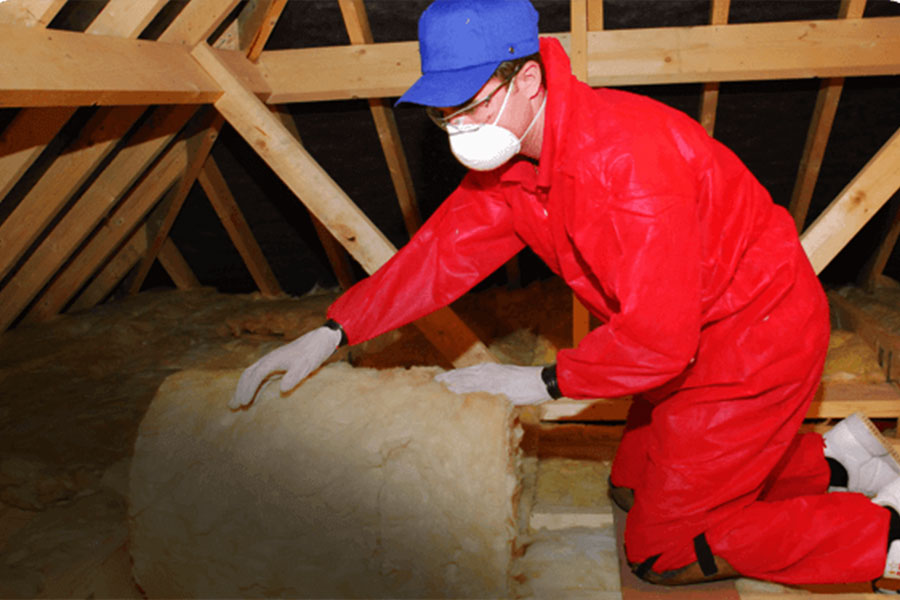Whenever it comes to making purchases for their home, especially in a time of rising energy prices, it’s only natural that people have criteria to be matched and questions to be answered beforehand. When it comes to home insulation, one of these is regarding longevity and value for money.
We often get asked the question:
“How long does home insulation last for? Will I need to replace it every few years?”
This question comes in two parts, and to answer the second part first: No, if installed correctly your insulation will last a lot longer than a “few years”.
But how long exactly?
To answer that, we need to break it down into the different forms of home insulation that are available.
How Long Does Cavity Wall Insulation Last?
Cavity wall insulation is designed to last for the entire lifespan of the building. If fitted correctly by an experienced and qualified team, then the insulating materials spraying into your cavity walls will remain in good condition forever and never need replacing.
This means that the cavity wall insulation could potentially save you tens of thousands of pounds over its lifespan, paying for itself many times over.
Alongside this, all of our cavity wall insulation installations use mineral wool product types which are covered by a 25-year insurance backed guarantee. This means that along with being fully compliant with the latest fire and safety regulations, should anything go wrong with the insulation then it will be replaced under the terms of the guarantee.
This means that even some of the first properties that we insulated are still within this guarantee!
How Long Does External Wall Insulation Last?
External wall insulation – also known as solid wall insulation – is generally designed to last for around 30 years. This means that over the lifespan of the product it can help you to achieve heating bill savings of up to or even in excess of £13,800.
The reason for the finite lifespan of external wall insulation in comparison to cavity wall insulation is due to the insulation boards being on the outside of the property and exposed to harsh weather conditions. In some cases the insulation boards may last even longer than those 30 years, we simply recommend having them reassessed at that point to check what condition they are in – and of course, they can be repainted throughout that time period if you fancy giving your home a different look.
All of the external wall insulation jobs carried out by Westville include a 25-year insurance backed guarantee.
How Long Does Loft Insulation Last?
Much like cavity wall insulation, loft insulation is designed to last for the entire lifespan of the house, providing energy bill savings of around £250 for each one of those years that it is installed.
There are some issues that can cause the loft insulation to become less effective, such as poor-fitting, regular disturbances, or ingress of pests such as pigeons, mice or wasps in the loft, but when left relatively undisturbed the loft insulation should easily last for the entire lifespan of the property.
In some cases loft insulation can be topped up depending on the current thickness, so should part of it become damaged, or should you want to improve what you already have, then this may be possible.
When To Replace Home Insulation
Most home insulation will last forever with little or no maintenance required – as mentioned above, it’s designed to last as long as the house. However, in some occasions, external factors can cause insulation to need to be replaced. In these situations it is important to know when a replacement is needed so that you can get it done quickly and get back to saving on your energy bills.
Here are some of the most common signs that the insulation of a property needs replacing.
- Animal Infestation – Squirrels, rats, mice, bats, wasps and more can all find their way into homes at times, and if this happens then it’s likely that you may need to replace your insulation. Droppings, chewing and general movement from the invaders can damage the insulation and prevent it from being as effective as possible.
- Wet Insulation – If your house suffers from a significant leak, then you will likely have to replace your cavity wall or loft insulation. If insulating materials become moist, damp or wet then it must be replaced immediately to prevent the growth of mould, and also to ensure that your home insulation stays effective.
- Draughts/Temperature Changes – If your insulation has been working fine but then all of a sudden you notice a significant change in house temperature, or start to feel draughts, then this is a sign that your insulation has been affected in some way and therefore may need topping up or replacing.
Properly installed and kept free from damaging external factors, home insulation offers fantastic benefits and money savings for the lifetime of your home. Even in the event of insulation becoming damaged or ineffective, there are now methods available to quickly remove and replace the materials so that you can continue to save on your energy bills and keep your home warm.
For more information regarding home insulation installation, replacement or removal, please don’t hesitate to give our team of advisers a call on 0800 1583605 or send us a quick message via our contact page.

